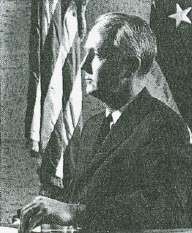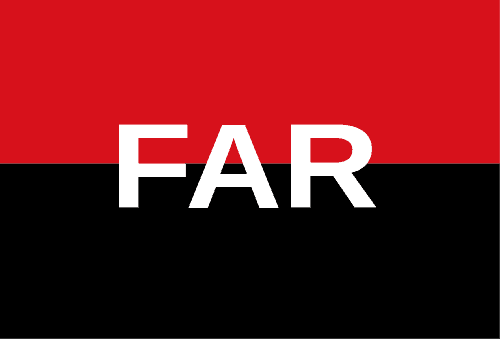Although a career in the Foreign Service is rewarding, it is not without risk. Many career assignments are not a sure bet for safety and can expose an officer to the volatile environment of a politically fragile country.
Such was the case for Sean Holly, who was assigned to Guatemala in 1968 as a labor attaché after working in India.

Guatemala was in the throes of its civil war between the government and leftist rebels. Within the month Holly arrived, John Gordon Mein—the U.S. Ambassador to Guatemala—was shot about a block away from the consulate in a failed kidnapping attempt by Marxist rebels. This would become the first assassination of a serving U.S. Ambassador.
This was a particularly delicate environment for Holly as a labor attaché since many of the guerilla groups were associated with unions and labor movements; in addition, the oligarchic government of Guatemala was vehemently against unionization, and would frequently target the leaders of these groups through kidnapping or assassination.
After one particular set of abductions by the government, the rebels retaliated by kidnapping Holly and using him as a bargaining piece, demanding the release of their members for Holly’s life. Fortunately, Holly was eventually released when the kidnappers’ demands were met. In the wake of the incident, Holly suffered from undiagnosed post-traumatic stress disorder and his wife was understandably uneasy at the thought of him going overseas again.
In this “moment” in U.S. diplomatic history, Holly recounts his harrowing experience of becoming the second U.S. Foreign Service Officer to be kidnapped.
Sean Holly’s interview was conducted by James F. Shea and Don R. Kienzle on August 26, 1999.
Read Sean Holly’s full oral history HERE.
Drafted by Wilton Cappel
ADST relies on the generous support of our members and readers like you. Please support our efforts to continue capturing, preserving, and sharing the experiences of America’s diplomats.
Excerpts:
“He had a submachine gun in my face, what do you think I am going to do?”
The Set-Up: I got a call from a guy who was killed afterwards. It was a guy that I had lunch with the day I was kidnapped. Jaime calls me and he is trying to set up a confederation. You have to remember by all these unions they are all trying to form confederations. The workers do not get to say anything about this. Remember that the Guatemalan oligarchy was violently anti-labor. I got this call from Jamie one day from the office and said that he wanted to talk to me about something. So, I said, “Sure!” We got together for lunch; it was one great place to have lunch. Unfortunately that is where I got kidnapped from, too. Anyway, great steaks….
Anyway I was fairly new in the embassy and I got this call. It was the minister of labor. He was a big, chubby, little guy. Now, the International Railways of Central America (IRCA) is the railroad from the port to Guatemala City. It had been subject to all kinds of legal problems and seizures. The guy who bought the stock was a bloodsucker. He was going to do something against the Guatemalans, but I do not remember all of the details. They had to straighten out who owned what. This minister of labor was coming to me. He was on his way over to talk to me about this. That was the relationship that I had with these people. Now, I don’t know who set me up. Some people think it was my buddy Jaime. I don’t know. He and I had lunch at that steak place. I had a very distinctive car. It was a yellow Mercury Comet, which I unfortunately left there. They were going to sell it for me and get some money. Instead someone stole the four new tires off of it. They sold it, but I did not get much money anyway. I had to send a cable to the ambassador to ask him what the hell happened to my car. Coming back to the embassy these guys ran me off of the road. First I thought it was college students because they always try to hold me up for money during a certain time of the year. However, when this guy comes up with a submachine gun, I knew that they were not college students. He said to get out of the car. I got out of the car! People had asked me, “Well, why did you do that?” I said, “Because he had a submachine gun in my face, what do you think I am going to do?” James Bond, I am not. So off we go to the boondocks….
“People constantly disappear.”
The Demands: They blindfolded me. At one point, we stopped and bought cokes. I offered to buy the coke, but I could not find my money. They thought one of their guys had stolen their money. This became an incident with them. What am I going to do? They fired at one of the PMA (Policia Militar Ambulante)(Mobile Military Police) that was nearby. Of course within two minutes the embassy had been called. Meanwhile you’ve got the labor attaché from New Delhi; the cable goes out worldwide that I had been kidnapped. Apparently they had heard about it in New Delhi. Off we go to the boonies, and I finally find out what the story is. They had some people kidnapped and held by the government, which is not a good thing. People constantly disappear. I was at a staff meeting one time and the ambassador had asked the station chief about so and so who was a guerrilla leader. He said, “Oh, they killed him yesterday.” This was even before we could talk to the guy. I mean, these are not nice people.
Q: This was a Communist Rebel Group?
They were Marxist. Off we go. It turns out that they wanted everybody free in exchange for me. I will not go through all of the details but it was not a good time. They got two of them, and then one guy had disappeared. This usually means that you are dead. They found him up on the Mexican border up in Tapachula. They had beaten him and they found him. The thing was the embassy was reluctant to press the government.
“I was not sure until the last couple of minutes if I was going to make it.”
Release: The following month they kidnapped the German ambassador and they killed him because they would not negotiate. I came awful close to being killed. Now my wife, Becky, who knew Spanish, had often claimed that the Irish gift of the gab can work in Spanish too. I was telling these guys; they were complaining about the fruit companies. I said, “You can complain to the fruit company, but they are the only ones who pay the wage.” They had been selling off land to Guatemalans. As soon as the Guatemalans bought the land, they would cut the wages to a dollar a day, close down the schools, and say, “If you don’t want to work, go someplace else.” As bad as it is, you can’t defend the Puterra (whoremonger). At least they pay the wages. They were running the hospitals, and paying for the school, which the government never did. Anyway, I got home and got out of that mess.
Q: So they actually got all three.
—And I got out of it. I was not sure until the last couple of minutes if I was going to make it.
Q: Did they release you?
They took me to a church and turned me over to the parish priest, who has long since left the priesthood. God knows what happened to him. You don’t understand. We used to hold a body count every Monday. We would take the local papers and count up how many people got killed or missing. We would try to figure out whether it was political, or not. It was a very violent society.
TABLE OF CONTENTS HIGHLIGHTS
Education
BS in History, Fordham University 1953–1957
Joined the Foreign Service 1957
New Delhi, India—Assistant Labor Attaché 1965–1968
Guatemala City, Guatemala—Labor Attaché 1968–1970
Washington D.C—Bureau of Near Eastern Affairs, Labor Advisor 1975–1978

